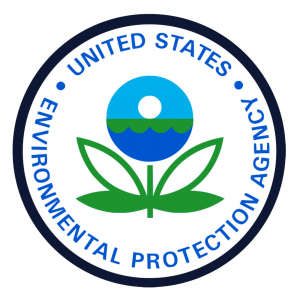
By: Clare McCarthy, General Sustainability Intern, Office of Sustainability Initiatives
The Environmental Protection Agency (EPA) recently selected Emory University as 1 of 12 recipients of its 2020 Sustainable Materials Management Funding Opportunity. This opportunity provides a solution to the issue of American food waste sent to landfills by encouraging the expansion of anaerobic digestion (AD) technology. AD is a process in which microorganisms break down organic material such as food scraps and sewage sludge. Benefits include the diversion of food waste from landfills, the generation of biogas (a renewable energy source) and the production of digestate (a nutrient-rich material which can be applied to land like fertilizer).
Emory will receive close to $300,000 to create a conceptual design for an on-campus AD prototype. The design will focus on the processing of campus food waste and sewage sludge as a mode of production for biogas and soil amendments. The design will prioritize reducing Emory’s contribution to environmental concerns of odor, noise, air quality and water quality for communities living near landfills.
Dr. Eri Saikawa, Associate Professor and Director of Graduate Studies for Emory’s Department of Environmental Sciences, is the primary project lead. Joan Kowal, Sr. Director of Resilience and Utility Strategies, will oversee the development of the feasibility study and conceptual design alongside a third party consultant. Professor Mindy Goldstein and the Turner Environmental Law Clinic will assess the project’s legal barriers, then guide the conceptual design according to their findings. Various faculty and students will be involved throughout the project in researching the challenges and ideal operation processes of the digester.
Utilizing the currently collected campus food waste along with the sewage sludge discharged from the campus water reclamation facility (the WaterHub), the project team will assess the ideal combination of food waste and sewage sludge to produce biogas and finished compost. The compost may be used at local farms, such as the Oxford Organic Farm. The project also includes an outreach component, namely organizing events and materials to increase public awareness of food waste and the importance of its landfill diversion.
This project aligns with Emory’s Sustainability Vision, 2025, particularly its energy and waste goals. Production of renewable biogas for campus energy use aligns with Emory’s goal of sourcing at least 10% of its energy needs from on-campus clean energy production by 2025. This increase in clean energy will accelerate Emory’s progress toward its targets of a 45% reduction in greenhouse gas emissions by 2035 and of net-zero emissions by 2050. The diversion of Emory’s food waste stream toward AD will facilitate the University’s path toward a 95% landfill diversion rate by 2025 and supporting campus culture change towards a “reduce, repair, restore, and reuse” mentality.
On a broader scale, this project demonstrates a solution for increasing AD of food waste that can be replicated by universities, corporations, communities and governments. This model is especially crucial, as the decomposition of food waste in landfills releases immense quantities of methane emissions and contributes to the greenhouse effect. Emory’s model will serve to inspire similar efforts to transform food waste into valuable resources and thereby mitigate the effects of global climate change.
